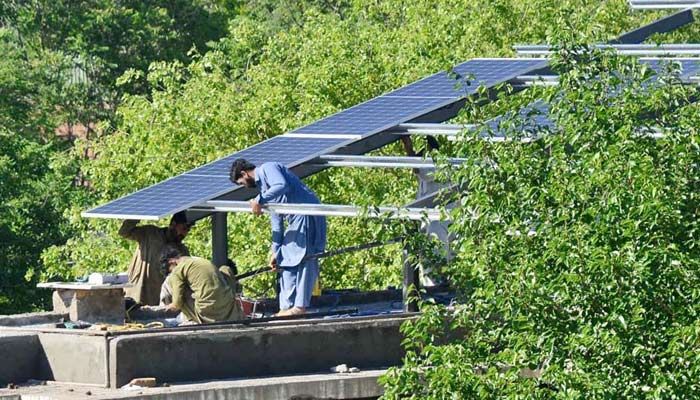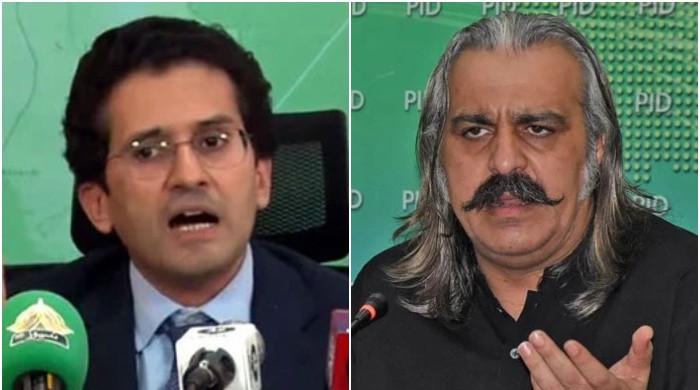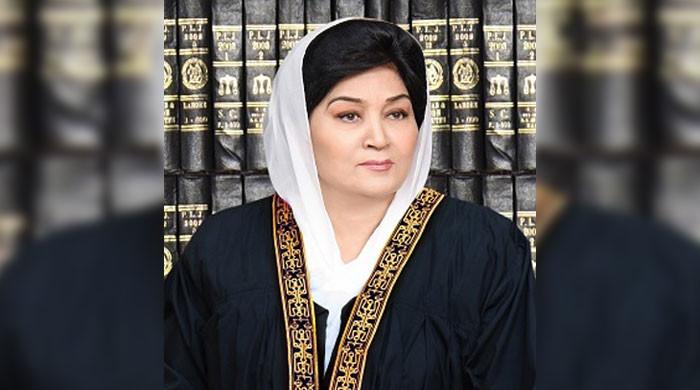Govt mulls slashing solar panel tariff to Rs7.5-11 per unit
Authorities plan significant cut in solar tariffs amid declining panel prices
November 21, 2024

- Govt considers aligning tariffs with falling panel costs.
- New rates may reduce rooftop solar installations.
- IMF raises concerns on solar over grid use.
ISLAMABAD: The federal government is contemplating a significant reduction in the tariff for rooftop solar panels, lowering it to Rs7.5-11 per unit from the current rate of over Rs21 per unit under the net metering system for electricity supplied to the national grid.
Right now, The News reported, two units generated through roof solar panels are equal to one unit of grid electricity.
The buyback tariff from solar consumers may be brought down to Rs7.5-11 per unit in view of the massive decline in solar panel prices. In return, consumers using roof solar panels would be provided with electricity from the national grid at Rs60 per unit during the night-time or peak hours.
"Under the new scenario, six units to be generated through roof solar panels would be equal to one unit of grid electricity. This would decrease the trend of installing solar panels on roofs by consumers as it is aggravating the capacity payments issue,” a senior official of the Energy Ministry told The News.
The IMF, in a recent interaction with the government functionaries, also expressed reservations about the increasing usage of solarised electricity in the country and showed concern over the decreasing utilisation of grid electricity.
The global lender demanded the government increase the demand for utilisation of the grid electricity.
According to the recently launched study, titled 'The Great Solar Rush in Pakistan', the country imported around 15GW solar panels worth $2.1 billion from China over the past fiscal year.
Contributing to this transition is the increased electricity tariffs — up by 155% over three years — driving high-consumption households and industries to shift towards solar energy solutions, says the study.
Meanwhile, the official said that K-Electric got the bid of 3.1 cents per unit for its solar plant and the government is pondering to bring down the solar panel tariff at close to the bid for which the government would approach Nepra.
"The people using solar panels will be provided with electricity at Rs60 per unit during night or peak hours. They are currently getting electricity from the grid at Rs42 per unit."
The IMF, at the time of talks for the loan programme in 2023, had earlier been sensitised that the country’s national grid was currently providing the service of storing electricity to rooftop solar consumers.
If the consumer has a roof solar system detached from the national grid, they would have to install huge batteries to store solar energy for consumption during night-time.
The per unit cost they would bear is expected to be 20 cents, equivalent to Rs60 per unit.
Authorities earlier wanted the introduction of gross metering instead of net metering.
Under the gross metering system, a consumer is compensated at a fixed feed-in tariff for total units of solar energy generated and exported to the grid (as measured by a unidirectional gross meter).
One must pay a retail supply tariff to the power distribution company for power consumed from the grid. Total solar generation is measured by a bi-directional meter, while total power is imported by the unidirectional meter.
Nepra has recently received many complaints from consumers across the country that DISCOS and K Electric are not entertaining the applications of installing net metering systems. Nepra to this effect issued a show cause notice to the KE for net metering violations.











